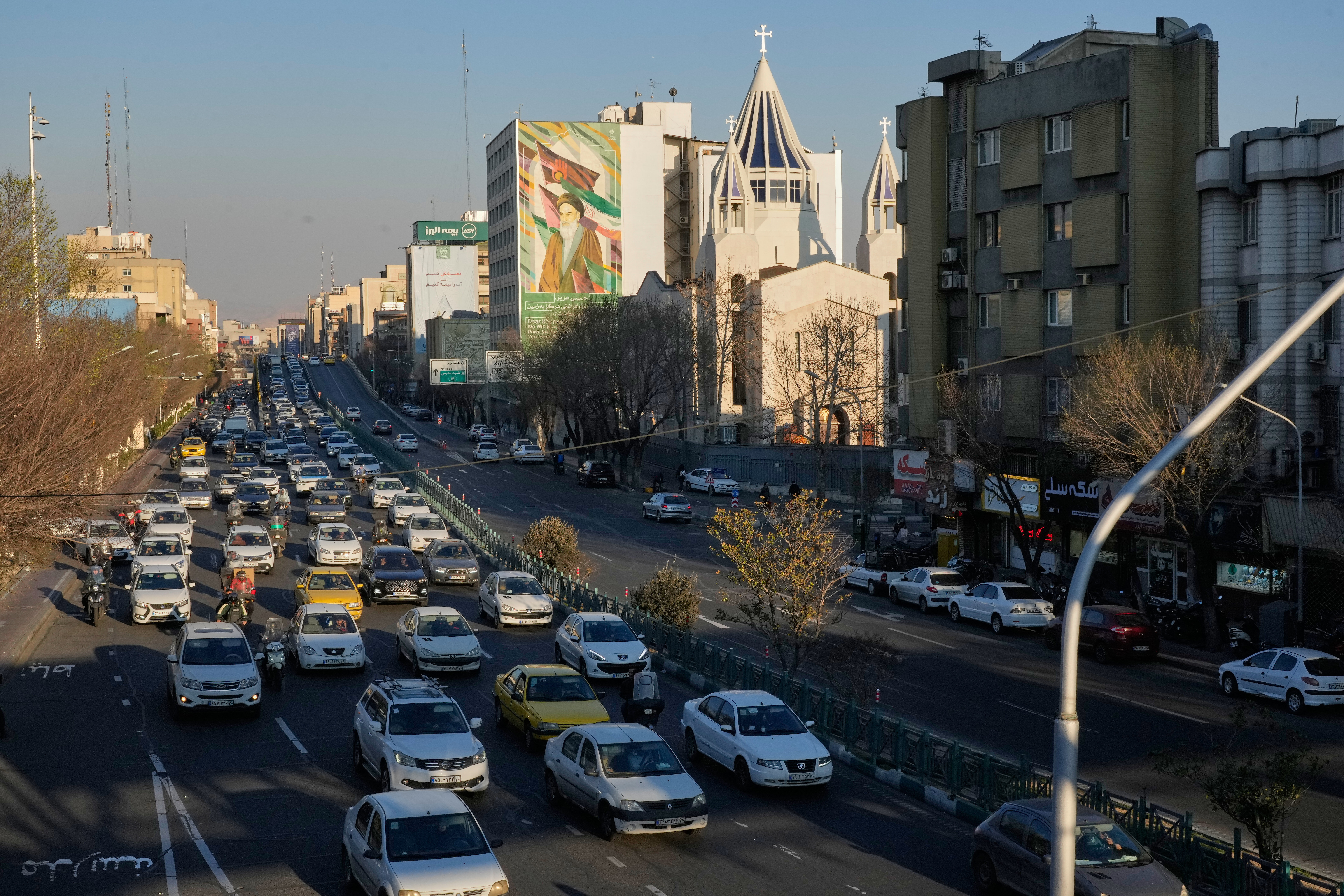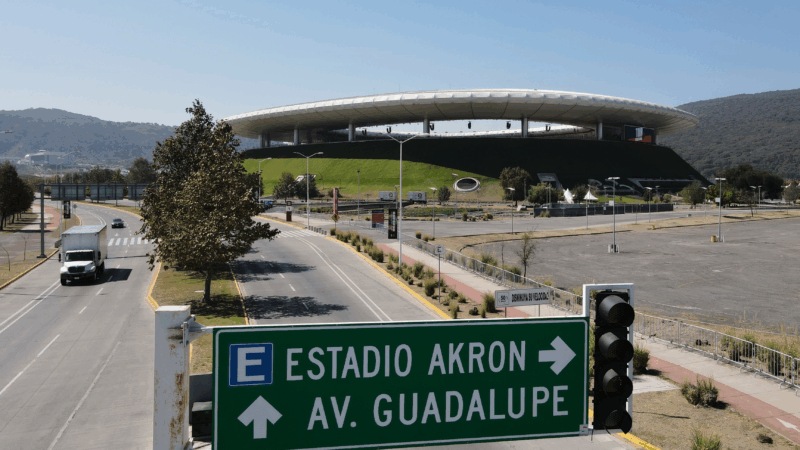Las Vegas sees drop in tourism, hinting at broader economic woes facing the U.S.
After years of booming tourism in Las Vegas, the hot streak looks to be cooling off — and it may be a tell for the broader economy.
For the sixth consecutive month this year, Las Vegas experienced a decline in the number of visitors year-over-year — with June seeing nearly 400,000 fewer visitors or an 11.3 percent drop compared to the same time last year, according to the Las Vegas Convention and Visitors Authority (LVCVA).
Summer is typically a slower season for Las Vegas given its heat and June was a quieter convention month than last year, according to experts on Las Vegas tourism. But the dip in tourism also comes amid growing concerns over the impact of President Trump’s global trade war and immigration policies on international travel to the U.S. Meanwhile, rising prices and tariffs appear to be changing how American consumers are spending their money.
In its June report, the LVCVA said the dip in tourism reflected “broader backdrop of persistent economic uncertainty and weaker consumer confidence.”
What happens in Las Vegas matters on a national scale because it often reflects larger trends, according to Andrew Woods, the director of the Center for Business and Economic Research at the University of Nevada, Las Vegas.
“It tends to be a signal for potentially where the economy’s headed,” he said.
By the numbers
Both hotel occupancy rate and convention attendance in Las Vegas fell several percentage points this June compared to the same period last year, according to the LVCVA.
The city’s Harry Reid International Airport also reported a decrease of roughly 318,000 passengers in June compared to last year — with drops in both domestic and international travel.
On the road, traffic on Interstate 15 at the California-Nevada border dipped in June by 4.3%, the Las Vegas Review-Journal reported.
Despite the slowdown, nearly 3.1 million people visited Las Vegas in June and convention attendance is higher year-to-date compared to the first half of 2024, the LVCVA reported. Gambling revenue from the city’s casinos slightly increased compared to June 2024, according to the Nevada Gaming Control Board.
International tourism takes a toll
Among the biggest blows has been the loss of visitors from Canada, who make up the biggest share of Las Vegas’ international market, according to Woods.
“A lot of the slowdown we’ve seen in international travel is, from what I understand, primarily driven by the Canadian visitations,” he said.
NPR has previously reported that many Canadians have scrapped their travel plans to the U.S. in protest of Trump’s 35% tariffs on many Canadian goods and repeated remarks suggesting the country should become the 51st U.S. state.
In the U.S. more broadly, there was a drop in international travelers from nearly every region in the world in June compared to last year, according to a preliminary summary from the National Travel and Tourism Office.
Rachel J.C. Fu, the chair of the Department of Tourism, Hospitality and Event Management at the University of Florida, said some international travelers feel wary of visiting the U.S. in light of news reports about tougher scrutiny at airports.
“Visa processing times and strict entry requirements have also been highlighted as barriers deterring potential international travelers,” she said.
The drop in international tourists — and particularly from Canada — has also been felt in New York City, Cape Cod, and across California. The World Travel & Tourism Council in May said that the U.S. is on track to lose $12.5 billion in international spending this year.
More cautious spending
Another driver for Vegas’ slowdown is persistent inflation and economic uncertainty, according to Woods. While these issues have existed for some time, they now appear to be influencing how consumers spend, he added.
“ They’re more discerning about where and how they’re traveling and where they’re spending their dollars,” Woods said.
That sentiment has also been reflected in national surveys. More Americans intend to take vacations this summer compared to last year, but they plan to do so with a smaller budget, according to a survey by Deloitte’s ConsumerSignals that was released in May.
For those spending cautiously, Las Vegas may not be in their cards, according to Oliver Lovat, CEO of the Denstone Group and a casino-industry consultant. He explained that the city has become more expensive in response to rising labor and food costs.
“If you’re looking for a bargain, because of the way that Las Vegas has changed, it’s no longer a bargain destination,” he said.
What’s in store for Las Vegas
Economists say it’s too early to determine whether the recent decline in Las Vegas is temporary or marks the beginning of a long-term trend.
How consumers in Las Vegas and across the U.S. spend their dollars after paying their bills and buying essentials will be a key indicator to watch out for, Woods said.
“Individuals and households are asking how confident they are in their purchasing decisions, such as when they buy a new car or where to go on vacation,” he added. “Because if they are confident enough to make those decisions, that is telling a lot about the health of our economy here in Las Vegas.”
Lovat is hopeful that tourism will pick up in the coming months. He believes that some travelers held off their Las Vegas trip in anticipation of upcoming major events, including concerts by Paul McCartney and the Backstreet Boys, as well as Formula 1 racing and the 2026 FIFA World Cup.
“ Certainly these early summer, early year numbers are alarming but not necessarily disturbing,” he said.
He added that while Vegas has been enjoying a tourism high since the end of the pandemic, it was not expected to last indefinitely.
“I always said, the post-pandemic boom was not sustainable,” Lovat said.
U.S. and Iran to hold a third round of nuclear talks in Geneva
Iran and the United States prepared to meet Thursday in Geneva for nuclear negotiations, as America has gathered a fleet of aircraft and warships to the Middle East to pressure Tehran into a deal.
FIFA’s Infantino confident Mexico can co-host World Cup despite cartel violence
FIFA President Gianni Infantino says he has "complete confidence" in Mexico as a World Cup co-host despite days of cartel violence in the country that has left at least 70 people dead.
Supreme Court appears split in tax foreclosure case
At issue is whether a county can seize homeowners' residence for unpaid property taxes and sell the house at auction for less than the homeowners would get if they put their home on the market themselves.
Top House Dem wants Justice Department to explain missing Trump-related Epstein files
After NPR reporting revealed dozens of pages of Epstein files related to President Trump appear to be missing from the public record, a top House Democrat wants to know why.
ICE won’t be at polling places this year, a Trump DHS official promises
In a call with top state voting officials, a Department of Homeland Security official stated unequivocally that immigration agents would not be patrolling polling places during this year's midterms.
Cubans from US killed after speedboat opens fire on island’s troops, Havana says
Cuba says the 10 passengers on a boat that opened fire on its soldiers were armed Cubans living in the U.S. who were trying to infiltrate the island and unleash terrorism. Secretary of State Marco Rubio says the U.S. is gathering its own information.







